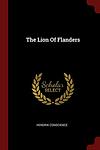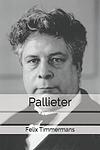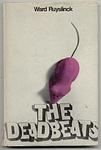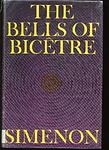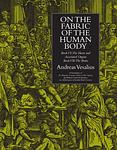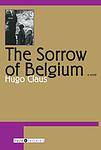The Greatest Roman, Belgian Books of All Time
Click to learn how this list is calculated.
This list represents a comprehensive and trusted collection of the greatest books. Developed through a specialized algorithm, it brings together 300 'best of' book lists to form a definitive guide to the world's most acclaimed books. For those interested in how these books are chosen, additional details can be found on the rankings page.
Genres
Countries
Date Range
Reading Statistics
Click the button below to see how many of these books you've read!
Download
If you're interested in downloading this list as a CSV file for use in a spreadsheet application, you can easily do so by clicking the button below. Please note that to ensure a manageable file size and faster download, the CSV will include details for only the first 500 books.
Download-
1. The Aeneid by Virgil
This epic poem tells the story of Aeneas, a Trojan who travels to Italy, where he becomes the ancestor of the Romans. It includes a series of prophecies about Rome's future and the deeds of heroic individuals, and is divided into two sections, the first illustrating the hero's journey and the second detailing the wars and battles that ensue as Aeneas attempts to establish a new home in Italy. The narrative is deeply imbued with themes of duty, fate, and divine intervention.
-
2. Confessions by Augustine
"Confessions" is an autobiographical work by a renowned theologian, in which he outlines his sinful youth and his conversion to Christianity. It is written in the form of a long, introspective prayer directed to God, exploring the author's spiritual journey and deep philosophical ponderings. The book is renowned for its eloquent and deeply personal exploration of faith, making it a cornerstone of Christian theology and Western literature.
-
3. Metamorphoses by Ovid
"Metamorphoses" is a classical epic poem that narrates the history of the world from its creation to the deification of Julius Caesar within a loose mythico-historical framework. The narrative is filled with stories of transformation, focusing on myths and legends of the Greek and Roman world. The tales, which include the stories of Daedalus and Icarus, King Midas, and Pyramus and Thisbe, among others, are all linked by the common theme of transformation, often as a punishment or reward from the gods.
-
4. Meditations by Marcus Aurelius
"Meditations" is a collection of personal writings by a Roman Emperor, providing deep insights into Stoic philosophy. The book is a series of introspective reflections on how to deal with life's challenges with wisdom, integrity, self-discipline, and benevolent affection for all mankind. It serves as a manual for self-improvement and moral guidance, emphasizing the importance of accepting things outside of one's control and maintaining a tranquil mind amidst adversity.
-
5. De Rerum Natura by Lucretius
"De Rerum Natura" is a long didactic poem written in the first century BC, which explores Epicurean philosophy and the nature of the universe. The text delves into topics such as the nature of the gods, the atomic structure of the universe, human sensation and thought, and the fear of death. The author argues that understanding the physical world can free humans from superstition and fear, leading to peace of mind and true happiness.
-
6. The Golden Ass (Metamorphoses): Or Metamorphoses by Apuleius
This classic novel follows the protagonist, a young man who is transformed into a donkey after meddling with magic he doesn't understand. His journey takes him through a series of adventures, where he encounters a variety of characters from different walks of life and gets into all sorts of trouble. Through his experiences, he gains a deeper understanding of the human condition and the world around him. The narrative also includes several mythological tales and allegories, including the famous story of Cupid and Psyche. Eventually, the protagonist regains his human form through divine intervention, having learned valuable lessons about life, love, and humanity.
-
7. Annals by Cornelius Tacitus
"Annals" is a historical work that provides a comprehensive account of the Roman Empire from the reign of Tiberius in 14 AD to the death of Nero in 68 AD. The author, a senator and historian of the Roman Empire, explores the inner workings of Roman politics, military campaigns, and social culture during this period. The book offers an in-depth look at the political machinations, power struggles, and the moral decay of the Roman elite, providing a critical perspective on the Roman emperors and their rule.
-
8. The Odes by Horace
"The Odes" is a collection of lyric poems by an ancient Roman poet. The poems cover a wide range of themes, including love, friendship, wine, nature, morality, and the human condition. The author's style is noted for its elegance, wit, and mastery of meter. The poems also reflect the social and political context of Rome during the author's lifetime, providing insight into the culture and values of the period.
-
9. Lives of the Caesars by Suetonius
"Lives of the Caesars" is a historical narrative that provides a detailed account of the personal and public lives of the first twelve Roman emperors, from Julius Caesar to Domitian. The author presents a vivid depiction of their character, behavior, appearance, and private lives, as well as their political actions, military exploits, and administrative policies. The book is a valuable source of information about the Roman Empire's early days, offering a unique perspective on the power, corruption, and extravagance of the Roman elite.
-
10. Cheese by Willem Elsschot
The novel revolves around a Dutchman living in Antwerp, Belgium, who is persuaded by his brother to enter the cheese business. He invests in 10,000 full-cream cheeses and sets up an office, but struggles to sell any of his stock. As he grapples with the nuances of the cheese trade, his personal life and professional relationships also begin to crumble, leading to a series of comical and tragic events. The book is a satirical commentary on business, ambition, and the absurdity of life.
-
11. The City of God by Augustine
The book is a philosophical and theological masterpiece, written as a defense of Christianity after the sack of Rome in 410 AD. The author contrasts the earthly city, characterized by pride and love of self to the point of contempt for God, with the heavenly city, characterized by love of God to the point of contempt for self. He argues that though the earthly city may seem dominant in the present age, the heavenly city will ultimately triumph. The book is a profound exploration of history, philosophy, religion, and the human condition.
-
12. Letters from a Stoic by Seneca
"Letters from a Stoic" is a collection of moral epistles written by a renowned Stoic philosopher. The letters provide practical guidance on everything from dealing with adversity and the pursuit of wisdom to the folly of consumerism and the nature of friendship. The author's stoic philosophy encourages peace of mind through understanding and accepting the natural order of the universe, and his letters offer timeless wisdom and insights that are still relevant today.
-
13. Histories by Cornelius Tacitus
"Histories" is a comprehensive account of the Roman Empire from 69-96 AD, a period marked by significant political turmoil. It provides an in-depth look at the reigns of four emperors: Galba, Otho, Vitellius, and Vespasian, along with the social and political upheavals of the time. The narrative also covers the Jewish rebellion and the burning of the Jerusalem Temple, offering a rich historical context of the period. Despite some gaps in the record, it remains a crucial primary source for understanding this era of Roman history.
-
14. Germania by Cornelius Tacitus
"Germania" is a historical and ethnographic work that provides a detailed description of the lands, customs, and tribes of the Germanic people in the first century AD. The author, a Roman historian and senator, offers a comprehensive account of the geography, anthropology, social institutions, and military practices of the Germanic tribes, often comparing their culture and values to those of the Romans. The work is considered a valuable source of information about the ancient Germanic tribes, despite its possible biases and inaccuracies.
-
15. Titi Livi Ab urbe condita libri by Livy
This historical work offers a comprehensive narrative of the history of Rome, from its mythical origins to the reign of the Roman Emperor Augustus. The author chronicles the major political, military, and social events of the Roman Republic, including the founding of the city, the establishment of the Republic, the Punic Wars, and the rise of Julius Caesar. The book is a significant source of information about the early history of Rome and is often considered one of the most important works of Roman history.
-
16. The Lion of Flanders by Hendrik Conscience
"The Lion of Flanders" is a historical novel set in the 14th century, during the Battle of the Golden Spurs in Flanders. The story revolves around the struggle of the Flemish people against French oppression, with a particular focus on the life of the main character, a brave knight. The novel is recognized for its vivid depiction of the battle and the spirit of nationalism, making it an important piece of Flemish literature.
-
17. Pallieter by Felix Timmermans
"Pallieter" is a classic Flemish novel that depicts the life of a jovial and life-loving man, Pallieter, who lives in harmony with nature in a small Belgian town. The story showcases his love for the simple pleasures of life, his interactions with the townsfolk, and his deep connection with the natural world. However, when industrialization threatens his idyllic lifestyle, Pallieter decides to leave his beloved town. The novel is a celebration of life and nature, while also exploring the impact of industrialization on rural life.
-
18. The deadbeats: a novel by Ward Ruyslinck
"The Deadbeats" is a gripping novel that follows the story of a man who, after losing his wife and job, descends into alcoholism and homelessness. The narrative delves into the harsh realities of life on the streets, exploring themes of despair, survival, and the human capacity for resilience. Despite the protagonist's struggles, the book also highlights moments of compassion and camaraderie among society's outcasts.
-
19. The bells of Bicêtre by Georges Simenon
The novel chronicles the life of a successful newspaper publisher who suffers a stroke and finds himself confined to a hospital bed, unable to communicate with the world around him. As he lies in his hospital bed, he is forced to reassess his life, his relationships and his own identity. The book explores themes of mortality, the meaning of life, and the complex nature of human relationships.
-
20. Poetry by Quintus Lutatius Catulus
This book is a collection of ancient Roman poetry by a renowned statesman and poet. The poems reflect the author's experiences, thoughts, and feelings about life, love, politics, and society during the Roman Republic era. The author's eloquent and vivid writing style, combined with his astute observations and insights, make this book a valuable resource for understanding Roman culture and history.
-
21. On the Fabric of the Human Body by Andreas Vesalius
"On the Fabric of the Human Body" is a seminal work in the field of anatomy, providing detailed descriptions and illustrations of the human body's structure and functions. The book, written in the 16th century, revolutionized the understanding of human anatomy, challenging the prevailing ideas of the time, which were primarily based on the dissection of animals. Its author, a physician and anatomist, emphasized the importance of direct observation and dissection of human bodies in medical education and research.
-
22. The Sorrow of Belgium by Hugo Claus
"The Sorrow of Belgium" is a coming-of-age story set against the backdrop of World War II. The narrative follows the life of a young boy in a Flemish town, as he navigates through the complexities of adolescence, family relationships, and the harsh realities of war. The novel provides an insightful exploration of Belgian history, culture, and the nation's struggle under the Nazi occupation, all through the eyes of the protagonist.
-
23. Catiline Orations by Marcus Tullius Cicero
"Catiline Orations" is a series of speeches given by a renowned Roman statesman, which were aimed at exposing and condemning the conspiracy led by Lucius Sergius Catilina. The speeches, delivered in the Roman Senate, are a masterful display of oratory skills and political acumen, as the statesman successfully manages to turn the Senate against Catiline, ultimately leading to his downfall. The book offers an in-depth study of these speeches, providing valuable insights into Roman politics, rhetoric, and the art of persuasion.
-
24. Blue Bird by Maurice Maeterlinck
This classic play tells the story of two children, Mytyl and Tyltyl, who embark on a magical journey in search of the Blue Bird of Happiness. Guided by the Fairy Bérylune, they explore various realms – the Land of Memory, the Palace of Night, the Kingdom of the Future, and more – encountering symbolic figures like the Cat, the Dog, Light, and the Souls of Bread. Throughout their quest, they learn profound lessons about happiness, the nature of good and evil, and the value of appreciating the simple joys of their own lives. The narrative is a rich tapestry of fantasy, philosophy, and a quest for meaning, emphasizing the idea that true happiness is often found closest to home.
-
25. Natural History by Pliny (the Elder)
"Natural History" is an extensive work of literature that provides a comprehensive look at the knowledge of the natural world during the Roman era. The book is divided into 37 volumes, each focusing on different aspects such as geography, anthropology, zoology, botany, and mineralogy. The author's curiosity and fascination with the world are evident in his detailed observations and descriptions. The book also includes discussions on art, sculpture, and various other topics, providing a rich and detailed snapshot of the Roman understanding of the world.
Reading Statistics
Click the button below to see how many of these books you've read!
Download
If you're interested in downloading this list as a CSV file for use in a spreadsheet application, you can easily do so by clicking the button below. Please note that to ensure a manageable file size and faster download, the CSV will include details for only the first 500 books.
Download














